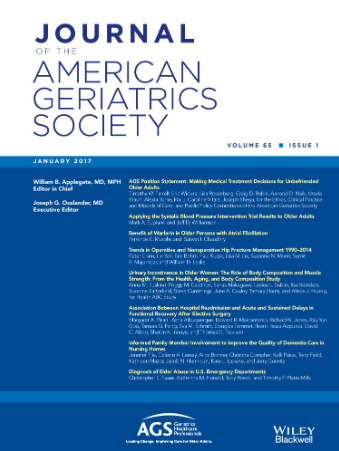Racial and ethnic differences in unmet needs among older adults receiving publicly-funded home and community-based services
Abstract
Background
Unmet need for home and community-based services (HCBS) may disparately impact older adults from racial and ethnic minoritized groups. We examined racial and ethnic differences in unmet need for HCBS among consumers ≥65 years using publicly funded HCBS.
Methods
We analyzed the National Core Indicators-Aging and Disability survey data (2015–2019) from 21,739 community-dwelling HCBS consumers aged ≥65 years in 23 participating states. Outcome measures included self-reported unmet need in six service types (i.e., personal care, homemaker/chore, delivered meals, adult day services, transportation, and caregiver support). Racial and ethnic groups included non-Hispanic Black, Asian, non-Hispanic White, Hispanic, and multiracial groups. Logistic regression models examined associations between race and ethnicity and unmet need, adjusting for sociodemographic, health, and HCBS program (i.e., Medicaid, Older Americans Act [OAA], Program for All-Inclusive Care for the Elderly [PACE]) characteristics, and use of specific service types.
Results
Among 21,739 respondents, 23.3% were Black, 3.4% were Asian, 10.8% were Hispanic, 58.8% were non-Hispanic White, and 3.7% were multiracial or identified with other races/ethnicities. Asian and Black consumers had higher odds of reporting unmet need in personal care than White consumers (adjusted odds ratio [aOR], 1.45, p value < 0.01; and aOR, 1.25, p < 0.001, respectively). Asian and Black consumers had significantly higher odds of unmet need in adult day services versus White consumers (aOR, 1.94, p < 0.001 and aOR, 1.39, p < 0.001, respectively). Black consumers had higher odds of unmet need versus non-Hispanic White consumers in meal delivery and caregiver support services (aOR, 1.29; p < 0.01; and aOR 1.26, p < 0.05, respectively). Race and ethnicity were not significantly associated with experiencing unmet need for homemaker/chore or transportation services.
Conclusions
Future research should identify driving forces in disparities in unmet need to develop culturally appropriate solutions.

 求助内容:
求助内容: 应助结果提醒方式:
应助结果提醒方式:


